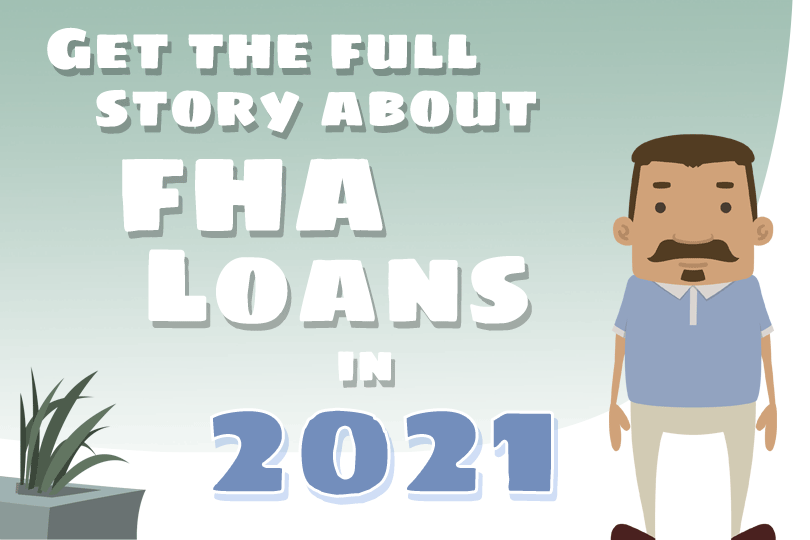FHA Loans Will Look Different in 2021

This paperwork is a typical part of the FHA home loan process; the changes are part of a larger move dictated by something known as the Housing Finance Reform plan. The new forms are meant “to provide clarity and certainty to its program participants while also managing risk to the Mutual Mortgage Insurance Fund.”
The release adds that the FHA and HUD made the revisions (see below) to “better reflect regulatory and other legal requirements, ensure accuracy of information provided to FHA and reduce uncertainty in the industry.”
How will these documents look going forward?
- FHA and the U.S. Department of Veterans Affairs (VA) have discontinued sharing the 92900-A.
- Pages One and Two now obtain consent from the borrower to verify their social security number and provide important disclosures such as the Public Reporting Burden as well as others.
- A warning about false certifications is added to the first page.
- Page three requires certifications consistent with 24 CFR 203.255(b) from the Mortgagee representative and the Direct Endorsement (DE) Underwriter for the appraisal when the mortgage receives an approval from FHA’s TOTAL Mortgage Scorecard, and DE Underwriter for manually underwritten loans.
- Page four now requires a post-closing certification from the Mortgagee representative prior to submission of the loan to FHA for insurance endorsement.
There is also at least one removal--a modification to HUD 4000.1 removing in its’ entirety a section regarding New Construction properties. This section was found in HUD 4000.1: New Construction –Completion of Construction (II.A.8.i.viii) before its removal. That section stated:
“Regardless of the inspection process used, the Mortgagee must certify on form HUD-92900-A, HUD/VA Addendum to Uniform Residential Loan Application, that the Property is 100 percent complete and meets HUD’s MPR and MPS.” Ask your loan officer if you have a construction loan or want to apply for a One-Time Close construction mortgage and aren’t sure how this rule change might affect your transaction."
The immediate use of the new forms is approved but becomes mandatory in March of 2021.
 FHA, VA, and USDA: One-Time Close Loans
FHA, VA, and USDA: One-Time Close LoansWant More Information About One-Time Close Loans?
We have done extensive research on the FHA (Federal Housing Administration), the VA (Department of Veterans Affairs) and the USDA (United States Department of Agriculture) One-Time Close Construction loan programs. We have spoken directly to licensed lenders that originate these residential loan types in most states and each company has supplied us the guidelines for their products. We can connect you with mortgage loan officers who work for lenders that know the product well and have consistently provided quality service. If you are interested in being contacted by a licensed lender in your area, please send responses to the questions below. All information is treated confidentially.
FHA.com provides information and connects consumers to qualified One-Time Close lenders in an effort to raise awareness about this loan product and to help consumers receive higher quality service. We are not paid for endorsing or recommending the lenders or loan originators and do not otherwise benefit from doing so. Consumers should shop for mortgage services and compare their options before agreeing to proceed.
Please note that investor guidelines for the FHA, VA, and USDA One-Time Close Construction Program only allow
Your email to [email protected] authorizes FHA.com to share your personal information with a mortgage lender licensed in your area to contact you.
- Send your first and last name, e-mail address, and contact telephone number.
- Tell us the city and state of the proposed property.
- Tell us your and/or the Co-borrower’s credit profile: Excellent – (680+), Good - (640-679), Fair – (620-639) or Poor- (Below 620). 620 is the minimum qualifying credit score for this product.
- Are you or your spouse (Co-borrower) eligible veterans? If either of you are eligible veterans, down payments as low as $0 may be available up to the maximum amount your debt-to-income ratio per VA will allow – there are no maximum loan amounts as per VA guidelines. Most lenders will go up to $750,000 and review higher loan amounts on a case by case basis. If not, the FHA down payment is 3.5% up to the maximum FHA lending limit for your county.

Do you know what's on your credit report?
Learn what your score means.






